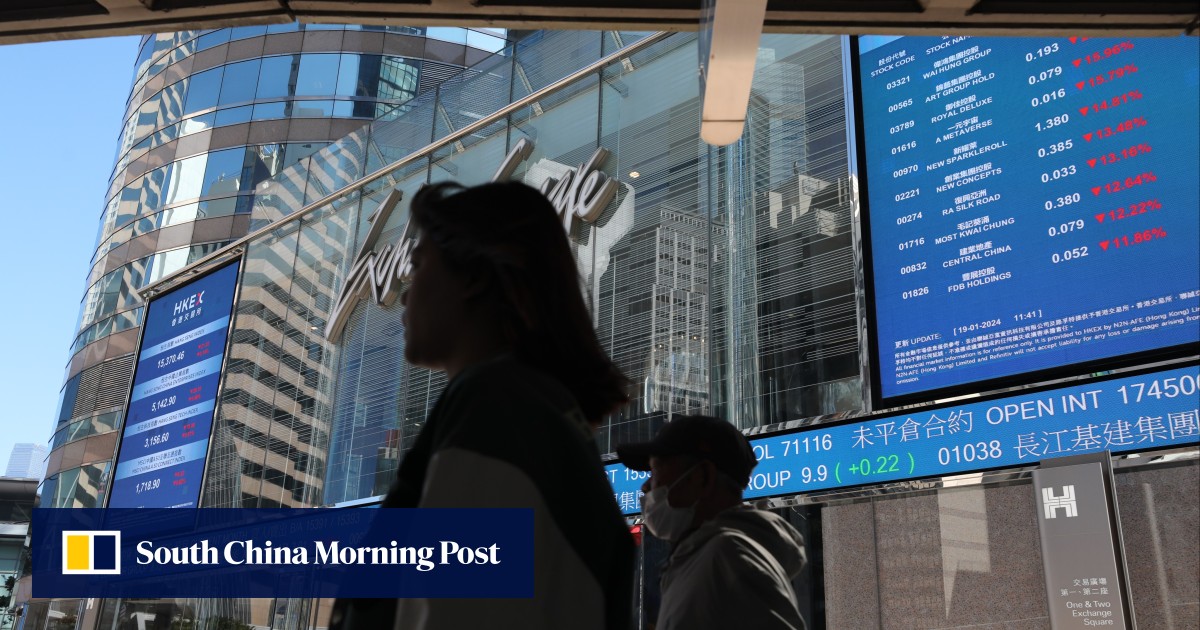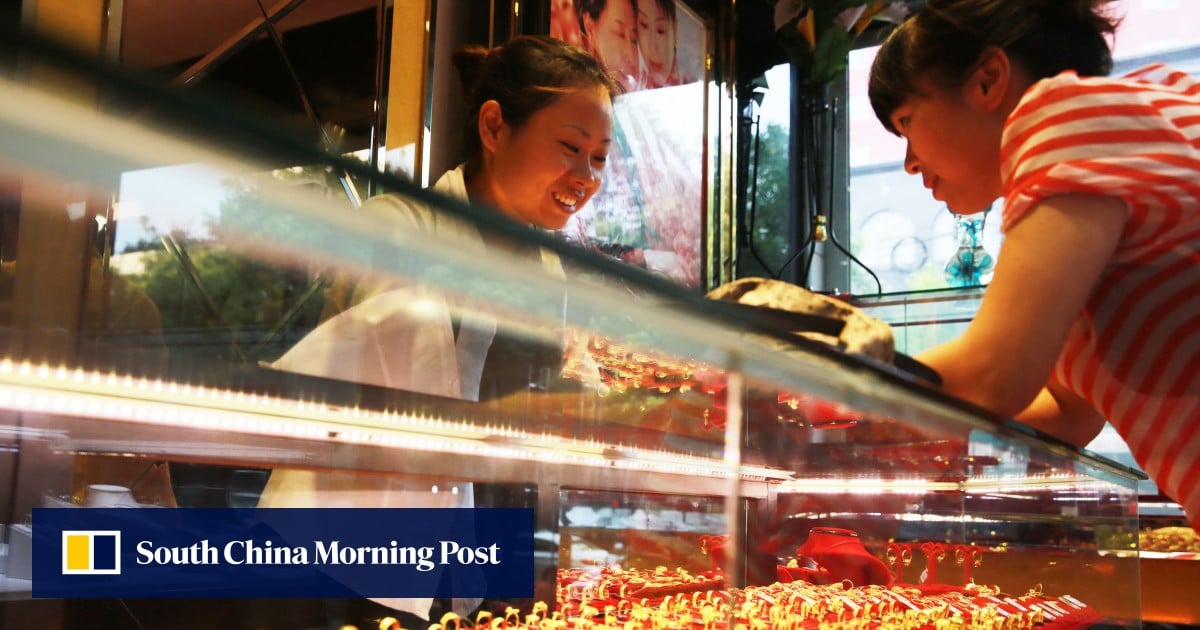Hong Kong stocks declined for the fourth day, taking the benchmark to a five week-low, as a batch of official figures from China pointed to a shaky and patchy recovery in the world’s second-largest economy.
The Hang Seng Index retreated 1.9 per cent to 16,279.56 at local noon trading break, the lowest since March 8. The Tech Index fell 2.7 per cent, while the Shanghai Composite Index tumbled 1.4 per cent.
E-commerce group Alibaba Group slipped 2.6 per cent to HK$68.60 and peer JD.com declined 2.6 per cent to HK$98.55. Insurance company AIA tumbled 3.2 per cent to HK$45.75. HSBC lost 2 per cent to HK$62.55 and Sun Hung Kai Properties declined 2 per cent to HK$69.85, leading losses among local lenders and developers.
China’s economy grew by 5.3 per cent in the first quarter of 2024, the National Bureau of Statistics said on Tuesday, above the 4.8 per cent estimate and the 5.2 per cent growth seen in the fourth quarter of last year.
However, retail sales growth slowed to 3.1 per cent in March year on year, lagging the 5.5 per cent growth in January and February combined, and industrial output rose by 4.5 per cent last month. Both readings missed economists’ estimates.
“While China’s headline GDP figure offered a glimmer of optimism, the underlying weakness in domestic demand and industrial activity suggests that challenges persist for the world’s second-largest economy,” managing partner at SPI Asset Management. Investors remain cautious amid uncertainties surrounding the pace and sustainability of China’s economic recovery, he added.
The property market remained subdued with new home prices falling 0.34 per cent in March from the previous month, the 10th straight month of decline. Beijing might need US$2.1 trillion to revive the sector as rescue plans have not been good enough, Goldman Sachs said in a report earlier this week.
Investors are also paring back expectations of additional stimulus after the GDP data surprise. “The strong first quarter growth will make the government comfortable with the current policy stance,” said Zhiwei Zhang, chief economist at Pinpoint Asset Management. With the Fed rate cut probability declining, the chance of rate cut by the People’s Bank of China is also diminishing, he added.
The Hang Seng Index has declined nearly 5 per cent since its peak on April 10, giving up some of the 14 per cent gain made since late January, fuelled by Beijing’s stimulus package. That brings the loss this year to 4 per cent, taking Hong Kong to the ranks of the worst performing major global markets.
Other key Asian markets declined, following the overnight retreat in the US market. Japan’s Nikkei 225 tumbled 2.2 per cent, Australia’s S&P/ASX 200 lost 2.1 per cent, while South Korea’s Kospi lost 2.4 per cent.





